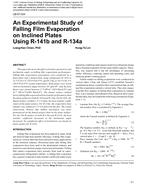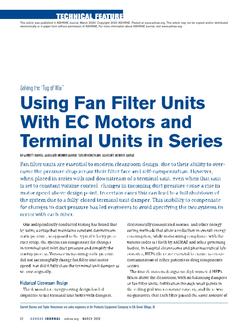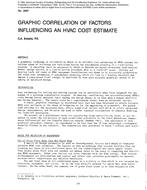This paper presents results from a study into the performance of a direct gas-fired heating system (DGF) in a parish church in the U.K. Data from a monitoring program were used to validate a model based on computational fluid dynamics (CFD). The model was subsequently used to generalize the monitored data and investigate methods to improve system performance with minimum cost and intervention. DGF heating systems introduce water vapor into the heated air from the combustion of natural gas, which would increase the risk of condensation on cold walls and other surfaces. The results of simulations presented in the paper demonstrate that careful sizing and design of DGF systems, using advanced modeling techniques such as CFD, can lead to improved thermal comfort through better air and wall surface temperature uniformity and reduced energy consumption and condensation risk.
Units: SI
Citation: Symposium Papers, Atlanta, GA, 2001
Product Details
- Published:
- 2001
- Number of Pages:
- 8
- File Size:
- 1 file , 620 KB
- Product Code(s):
- D-7146


